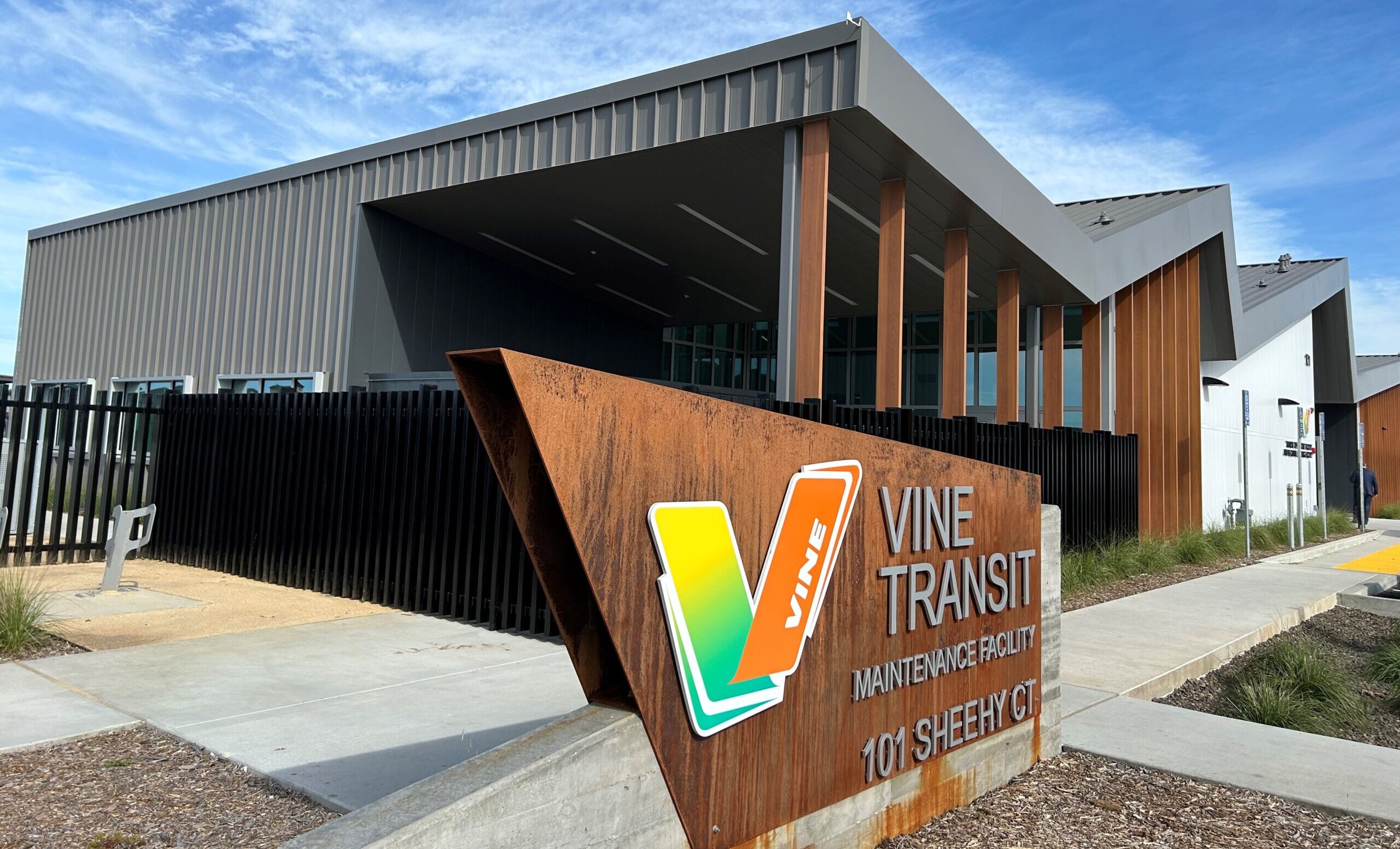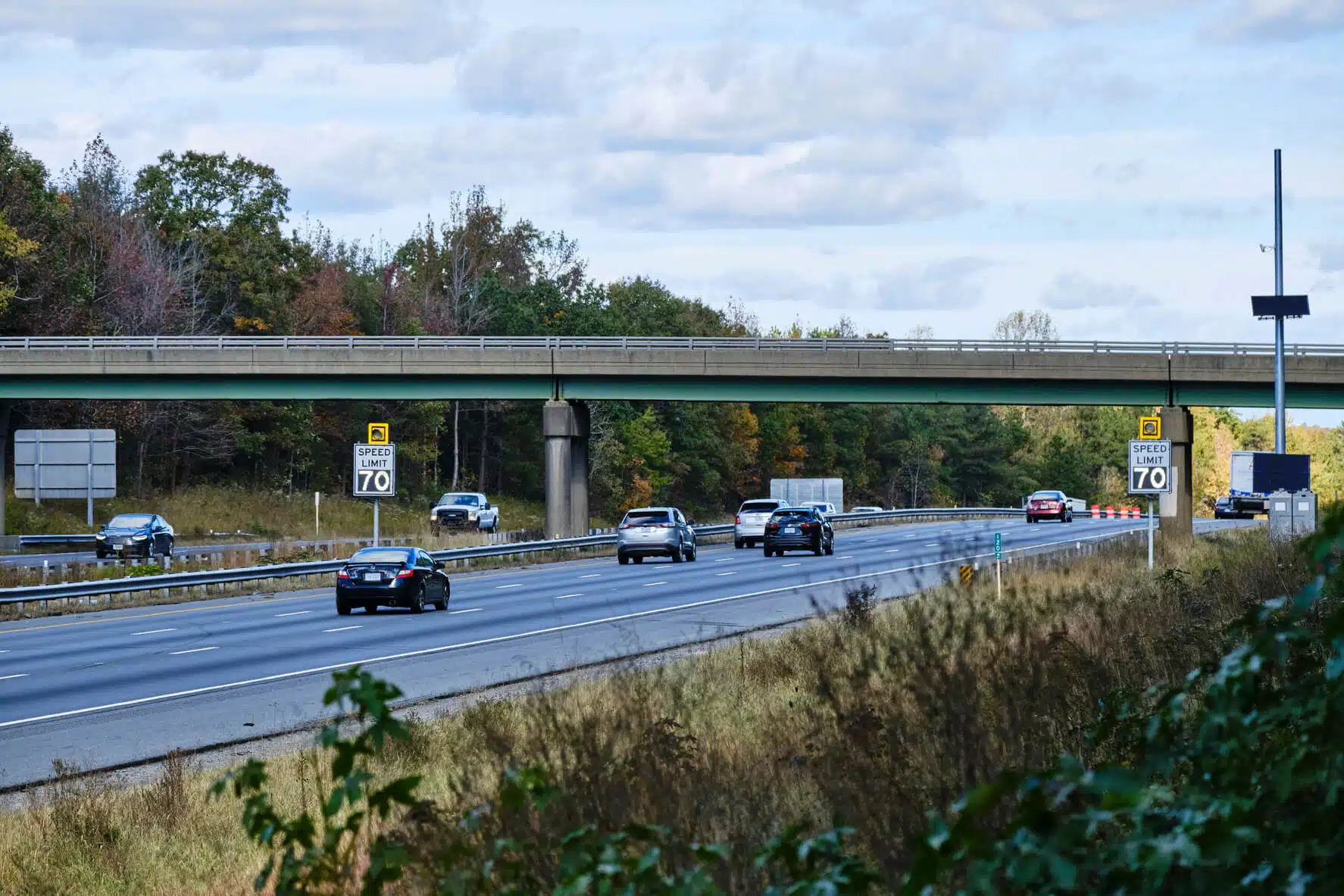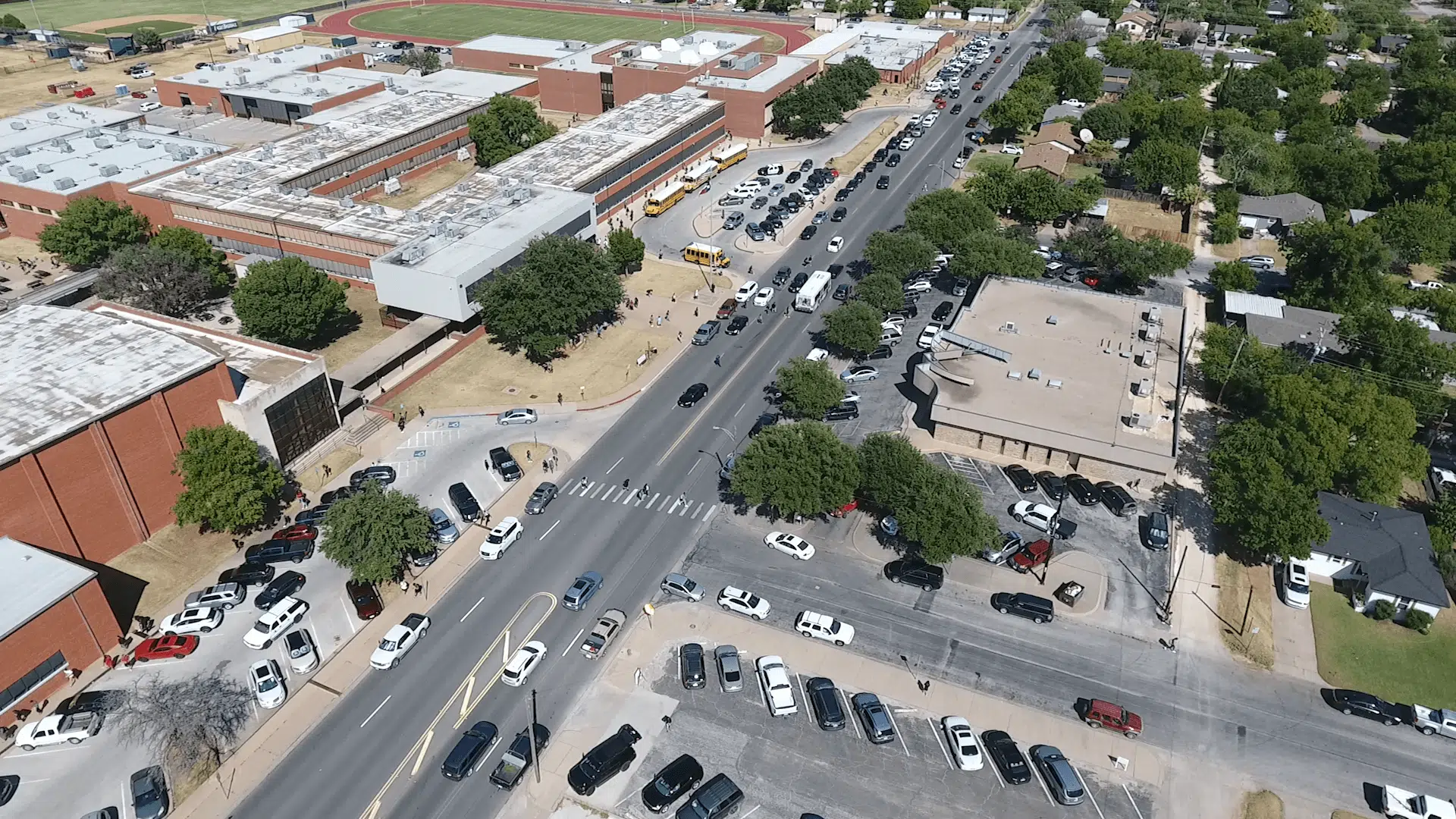Innovation
The MMC improves traffic flow through an innovative "pedestrian scramble".
Efficiency
Remotely investigated 10,172 citizen concerns, saving time and money.
Active
The Mobility Management Center monitors and adjusts signal operations in real-time.
The City of Austin selected Kimley-Horn to provide critical staffing at the Mobility Management Center (MMC). Kimley-Horn traffic engineers at the MMC oversee arterial traffic operations daily, through normal weeks, holidays, and weather emergencies.
In a city as vibrant as Austin, special events are very common, and Kimley-Horn assists the City with signals and adjustments for major events. With the opening of Austin FC’s Q2 Stadium in June 2021, our team had the opportunity to play at a higher level and partner more closely with the Austin Police Department to manage both pedestrian and vehicular traffic at major events.
Making a Cross with Austin FC
Austin FC is a Major League Soccer club and hosts international soccer matches at Q2 stadium, which can house up to 20,500 fans. It has very limited parking and is near a rail station and several bus routes. All of this creates traffic operational challenges as large crowds of pedestrians and drivers all rush to attend the games.
To address the high concentrations of fans, the Kimley-Horn team worked with Austin PD to develop ingress and egress plans that prioritized pedestrian access without overflowing arterial traffic for drivers. Normal signal operations at two of the busiest locations created major conflicts between pedestrians and turning vehicles that made it difficult for all event attendees.
The solution, inspired by Kimley-Horn’s award-winning Super Bowl LIII Traffic Management Playbook, was creating a “pedestrian scramble” period for the signals immediately near the stadium, synchronized by the MMC to begin after the conclusion of a game. At the MMC, traffic engineers switch these nearby intersections from normal operations to a pedestrian-centric operation for about an hour after the game. All vehicles are stopped at the intersection, and pedestrians are able to cross in any direction for a longer interval; then, all pedestrian traffic is halted to allow vehicles to flow to maintain balance on the roadways.
This change allows larger crowds to cross simultaneously, in any direction, saving time for pedestrians. And because vehicles have their own designated travel signals, the intersection is also optimized for drivers; instead of waiting around for the car ahead to make a right turn while a crowd crosses the street, all vehicles get a chance to move more quickly.
This simple change provided an immediate boost to safety and provided the City more than $300,000 in travel delay benefits across 21 soccer matches for 2021 alone.
Music Moves at Austin City Limits
After the success for Austin FC, the Kimley-Horn team turned to another major event: Austin City Limits (ACL). This annual music festival held on two consecutive three-day weekend operates live concerts from 10 a.m. to 10 p.m. Friday, Saturday, and Sunday, averaging about 75,000 attendees per day or 450,000 annually.
The MMC traffic engineers coordinated with the Austin Police Department as a starting point, and mirrored prior operations to institute a two minute pedestrian cycle balanced against one minute for vehicles. This “pedestrian flush plan” helps the large music crowd disperse safely.
Similar to the pedestrian scramble set up for Austin FC, the pedestrian flush plan helps resolve conflicts between crowds and cars: at the primary intersection of Lamar & Barton Springs, Barton Springs is completely closed to vehicles and only open for pedestrians to ease congestion.
These changes removed the potential for conflicts between vehicles and pedestrians, improving safety. The pedestrian flush plan also allows for easier crowd and intersection control for the Police Department.
“This was the least stressful ACL we’ve worked thanks to the signal changes…the best improvement we’ve had in years!”
— Corey Jewell, APD Officer
Covering All Events, Big and Small
The Kimley-Horn MMC team manages super-events like ACL, South by Southwest, University of Texas football games, the Trail of Lights, the Formula 1 US Grand Prix, and others.
But even smaller “microevents” can have big impacts on traffic flow, so the MMC expanded its operations to provide custom management during peak times for smaller venues, such as regional high school football games, University of Texas volleyball games, or University of Texas graduation. For almost 100 event-days throughout the year, the MMC adjusted signal timing and scheduled alternative signal plans to help the traveling public at more events throughout the year.
In total, the MMC actively staffed and managed traffic for 74 event days (compared to 41 event days in 2020), totaling more than $1.3 million in delay-savings.
Closer Look
- Hours: For normal operations, the MMC is operated from 6 a.m. to 8 p.m. during weekdays, 9 a.m. to 6 p.m. Saturdays, and 10 a.m. to 6 p.m. on Sundays
- Staff: 6. On any typical weekday, Kimley-Horn provides a TMC Manager, TMC Engineer, TMC Senior Operator, and three TMC operators.
- Additional Kimley-Horn support staff include an overall Project Manager, a Task Manager that oversees the development of performance measures, a Task Manager for the development of Standard Operating Procedures, software engineers, and software programmers
- In 2021 the MMC developed a five year vision. One of the chief goals is to turn data into action by “creating processes and scheduled activities to analyze and act on data and trends…[and] measure performance and quantify benefits of the program(s).”
- A majority of MMC responsibilities are maintaining and operating signal infrastructure proactively. The MMC:
- Responded to 1,112 signals in flash mode due to malfunction
- Remotely reset 303 malfunctioning signals
- Remotely investigating 10,172 Citizen Survey Requests
- 6,500 were investigated without needing dispatch
- Detected 80% of all flash events occurring during operational hours
- Active management of highway and arterial road closures due to planned construction, totaling 28,600 hours of maintenance
- The MMC alerts the public of traffic notices via X, Dynamic Message Signs, and other technologies, and posted 1,100 tweets.



